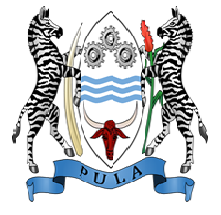Formerly the British protectorate of Bechuanaland, Botswana adopted its new name at independence in 1966. More than four decades of uninterrupted civilian leadership, progressive social policies, and significant capital investment have created one of the most stable economies in Africa. The ruling Botswana Democratic Party has won every election since independence; President Ian KHAMA was reelected for a second term in 2014. Mineral extraction, principally diamond mining, dominates economic activity, though tourism is a growing sector due to the country's conservation practices and extensive nature preserves. Botswana has one of the world's highest known rates of HIV/AIDS infection, but also one of Africa's most progressive and comprehensive programs for dealing with the disease.
Botswana is a parliamentary republic.
Source: CIA World Factbook
Members:
Resources
Displaying 51 - 55 of 57Land Control Act (Chapter 32:11).
This Act stipulates that no dealings in agricultural land, i.e. sale, transfer, lease of more than five years, exchange partition, division, etc. shall be contracted with a person not being a citizen of Botswana unless the Minister has given his/her consent to that transaction (sect. 3). This rule does not apply to companies registered under the Companies Act. Proposed transactions of this kind shall be advertised in accordance with section 5. Section 7 sets out criteria for decision making of the Minister with respect to the granting of consent.
State Land Act (Chapter 32:01).
This Act concerns “State land”, which means unalienated State land and reacquired State land. Those terms are defined in section 2. The President of Botswana may make and execute grants or other dispositions of any State land or any interest in them. The exercise of such powers may be delegated to a persons authorised by the President by Notice published in the Official Gazette.
Tribal Lands (Subordinate Land Boards) Regulations, 1973 (Chapter 32:02).
These Regulations provide for matters relative to Subordinate Land Boards established by Order of the President under section 19 of the Tribal Land Act, 1968 and the grant of customary land rights to tribesmen and other persons. Part II concerns the manner of election of these Boards, its internal procedures, and functionaries.
Establishment of Subordinate Lands Boards Order, 1973 (Chapter 32:02).
This Order of the President made under section 19 of the Tribal Land Act, 1968, establishes the Subordinate Land Boards set out in the Schedule to this Order and defines the composition and functions of these Boards. These Boards shall have jurisdiction in their respective specified areas or villages. Functions shall be transferred from Subordinate Land Authorities to the Boards and include decision making regarding ploughing of land, grazing of cattle, and communal uses of land.
Tribal Land Regulations, 1970 (Chapter 32:02).
These Regulations, in implementation of provisions of the Tribal Land Act, provide for matters relative to the establishment and operation of Land Boards and the granting of customary and common law land rights to tribesmen and other persons.The 36 regulations are divided into 6 Parts: Preliminary (I); Grant of customary land rights (II); Grant of common law land rights and customary rights under section 33 (IV); Treasure and audit (V); Fees (Part VI).Provisions of Part II concern election of members of the Land Boards, the Chairman, duties of the Secretary and consultation with District Co


